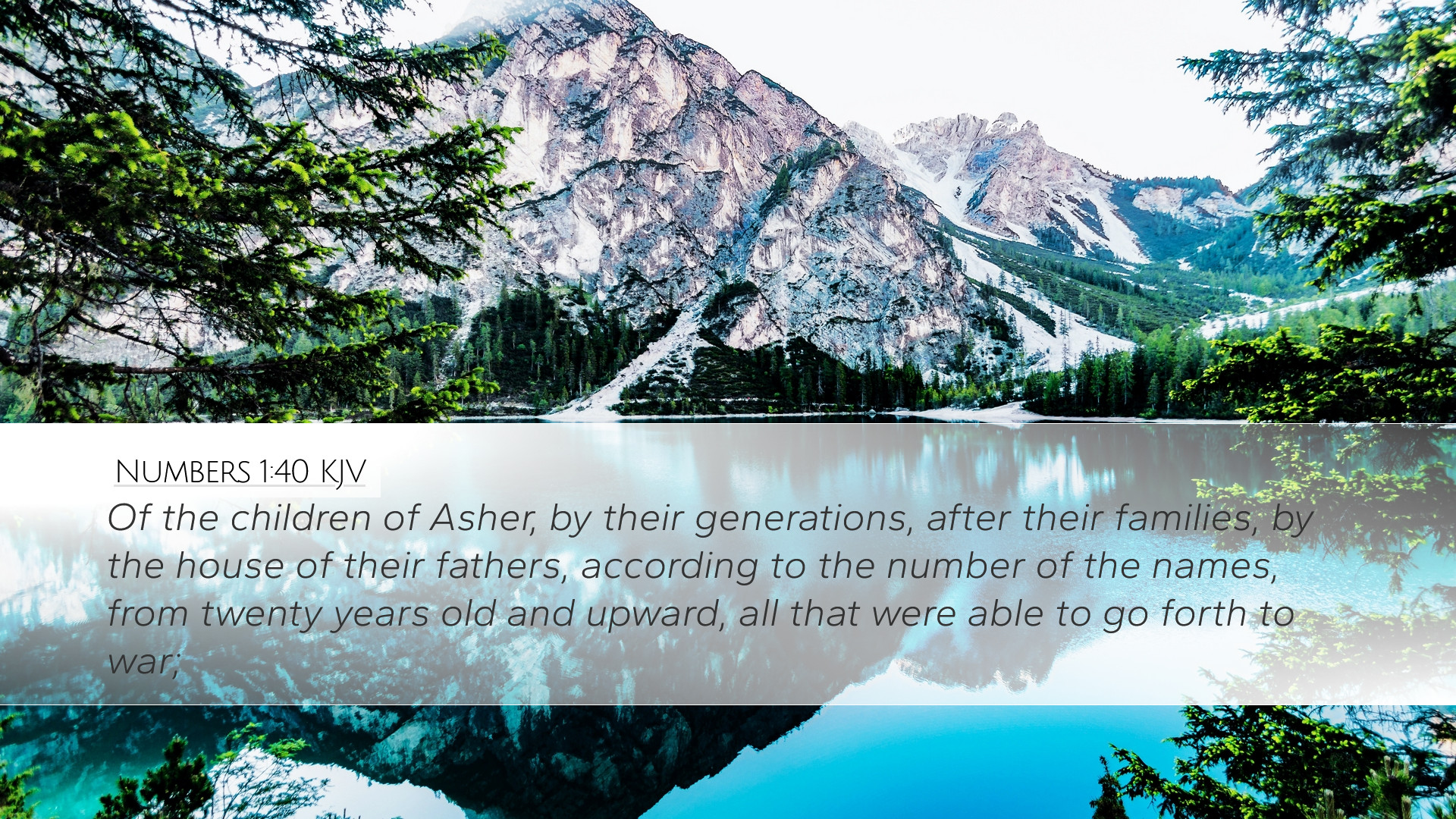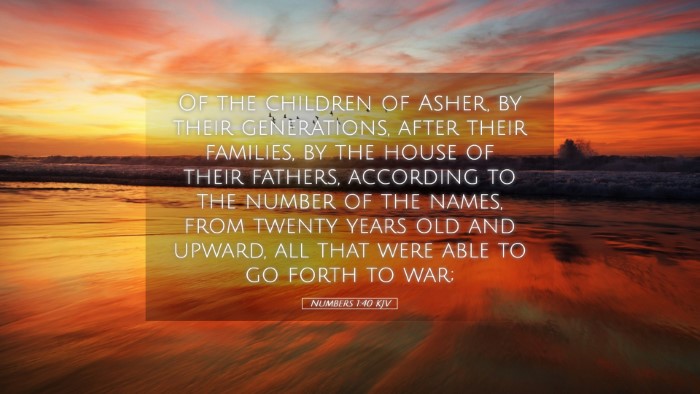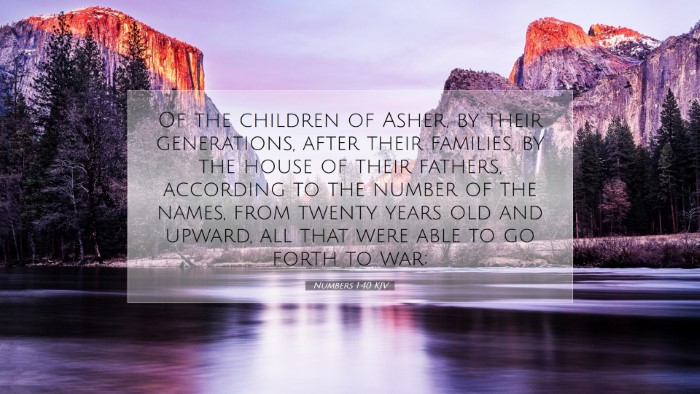Commentary on Numbers 1:40
Verse: Numbers 1:40 - "Of the children of Joseph, namely, of the children of Ephraim, by their generations, after their families, by the house of their fathers, according to the number of the names, from twenty years old and upward, all that were able to go forth to war."
Introduction
This verse appears in the context of the census taken by Moses and Aaron as commanded by God in the wilderness of Sinai. The enumeration serves multiple key purposes, including organizing the Israelite community, preparing for impending military engagements, and emphasizing the significance of tribal identities within God's covenant people. Here, we will integrate insights from well-respected biblical commentators to explore the depth and nuances of this verse.
Exegesis and Historical Context
The census was crucial for the Israelites, particularly for military organization. The tribe of Ephraim, mentioned here specifically, is critical given its future prominence in Israel's history, especially under the leadership of figures like Joshua. According to Matthew Henry’s Commentary, "Ephraim was chosen to lead the way in conquest, reflective of their importance among Joseph's descendants."
Tribal Significance
Each tribe was not merely a societal unit, but a fulfillment of the prophetic blessings given to the patriarchs. Ephraim, as the leading tribe of Joseph, represents not only the prosperity associated with Joseph's actions in Egypt but also the carryover of that legacy into the community of Israel. Albert Barnes points out, "By starting the listing with Ephraim, the record reinforces the notion of leadership and the preeminence of Joseph’s lineage, often associated with strength and fruitfulness."
Spiritual Implications of the Census
The census acknowledges all men aged twenty and upward who were able to fight, implying a spiritual and physical readiness to obey God's commands and to engage in the struggles that lie ahead. Adam Clarke notes, "This readiness for battle symbolizes the preparedness of God’s people to enter into their inheritance, reflecting a broader call to spiritual readiness for believers today."
- Divine Order: The ordering of the tribes illustrates God's providential governance. Each tribe had a designated role, reinforcing the idea that all members of the covenant community have specific callings.
- Preparation for Warfare: The reference to military preparation highlights the idea that spiritual battles require readiness. Just as physical readiness was essential for the Israelites, so spiritual vigilance is crucial for followers of Christ (Ephesians 6:10-18).
- Inclusivity and Identity: The mention of names indicates that God knows each individual by name, showing the personal relationship He has with each member of His people.
Theological Reflections
There is a theological richness in this census narrative which connects to New Testament themes. For instance, the readiness of God’s people for conflicts can be related to the calling of believers to put on the full armor of God. This notion of readiness is not limited to physical strength, but includes faith, prayer, and community support—vital attributes in any believer’s life.
Furthermore, the mention of "from twenty years old and upward" can signify the maturity of faith required to serve in God's army. Matthew Henry asserts, "This age often signifies an individual entering maturity, representing the spiritual maturity needed among God’s people not just for warfare, but for leadership and responsibility within the community."
Application for Contemporary Believers
This verse invites contemporary believers to consider their readiness for service and leadership within the body of Christ. The fellowship of believers should cultivate an environment whereby each member understands their gifting and calling within the church, akin to the structure outlined in the Old Testament. Pastors and leaders are encouraged to engage with the congregation, fostering a culture of spiritual warfare awareness and mutual support.
- Emphasis on Community: Just as the tribes were counted, modern congregations should prioritize community engagement, recognizing that every member contributes to the fabric of the church.
- Active Participation: Believers should reflect on their active roles within their communities, assessing how they can contribute to the collective mission, drawing parallels with the readiness to fight outlined in Numbers 1:40.
Conclusion
Numbers 1:40 provides a profound glimpse into the social and spiritual dynamics of the Israelite community, emphasizing preparation, identity, and divine order. The insights drawn from the commentaries enrich our understanding of the text and its implications for today. In studying this passage, believers are called to a deeper awareness of God's workings in their lives and in the collective life of the church, ready to take on the challenges that await, both spiritually and communally.


